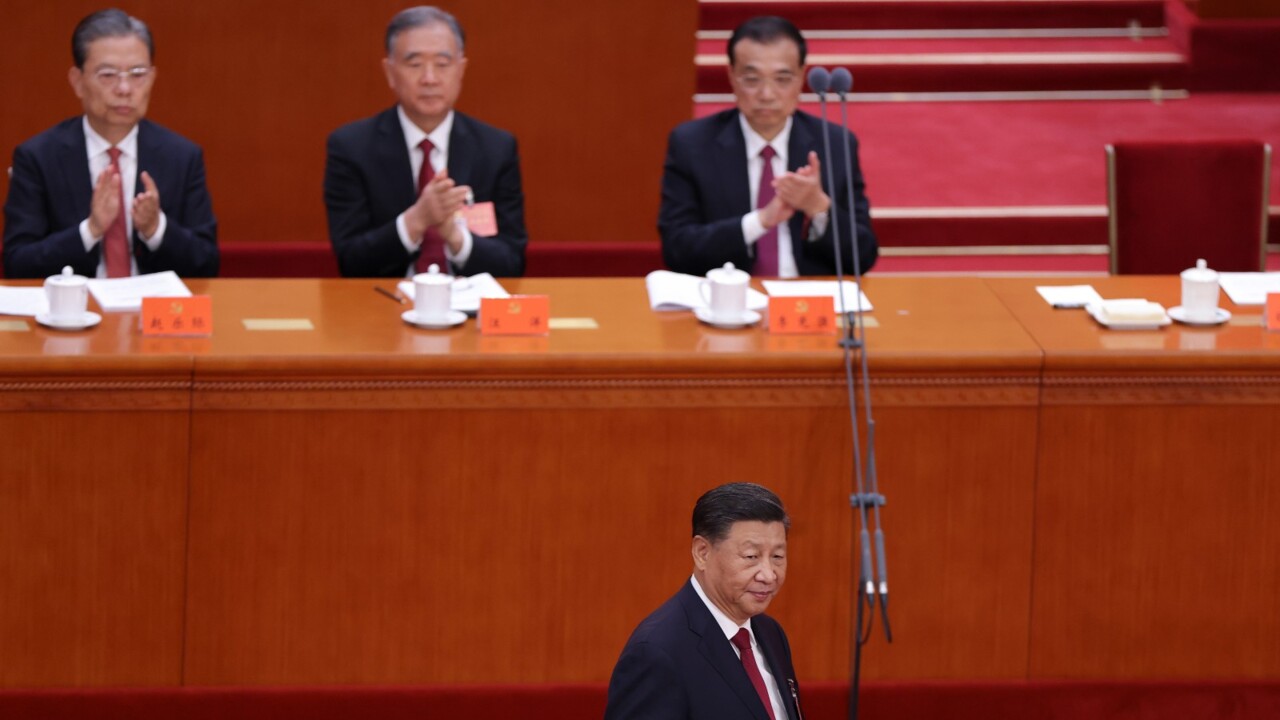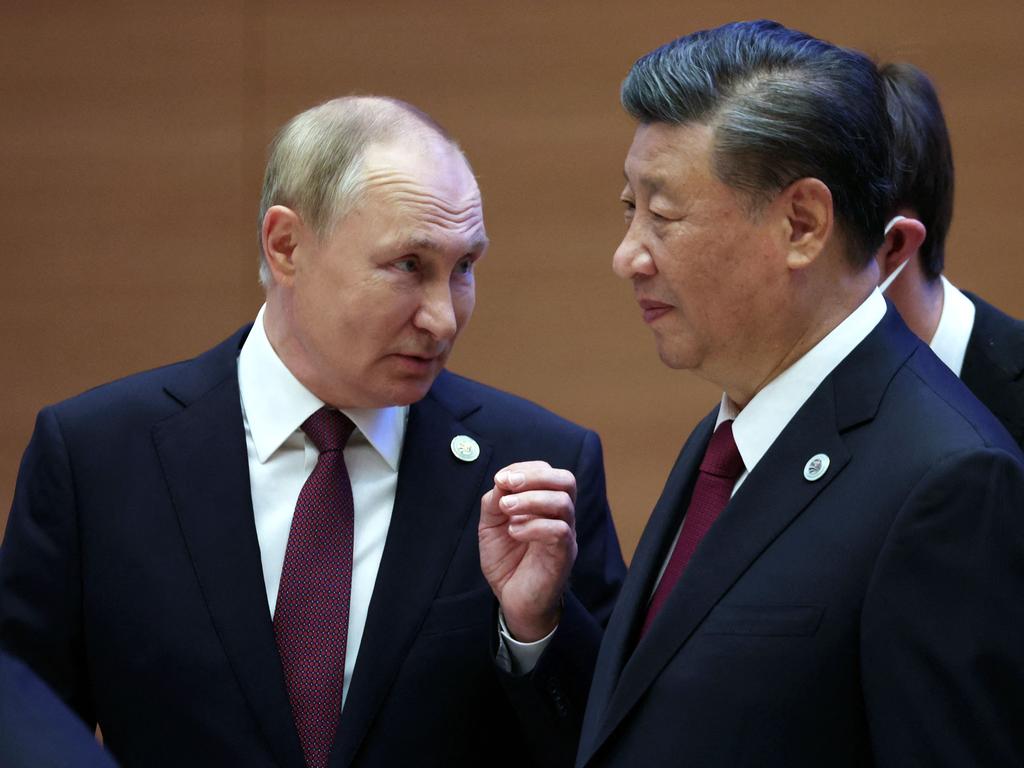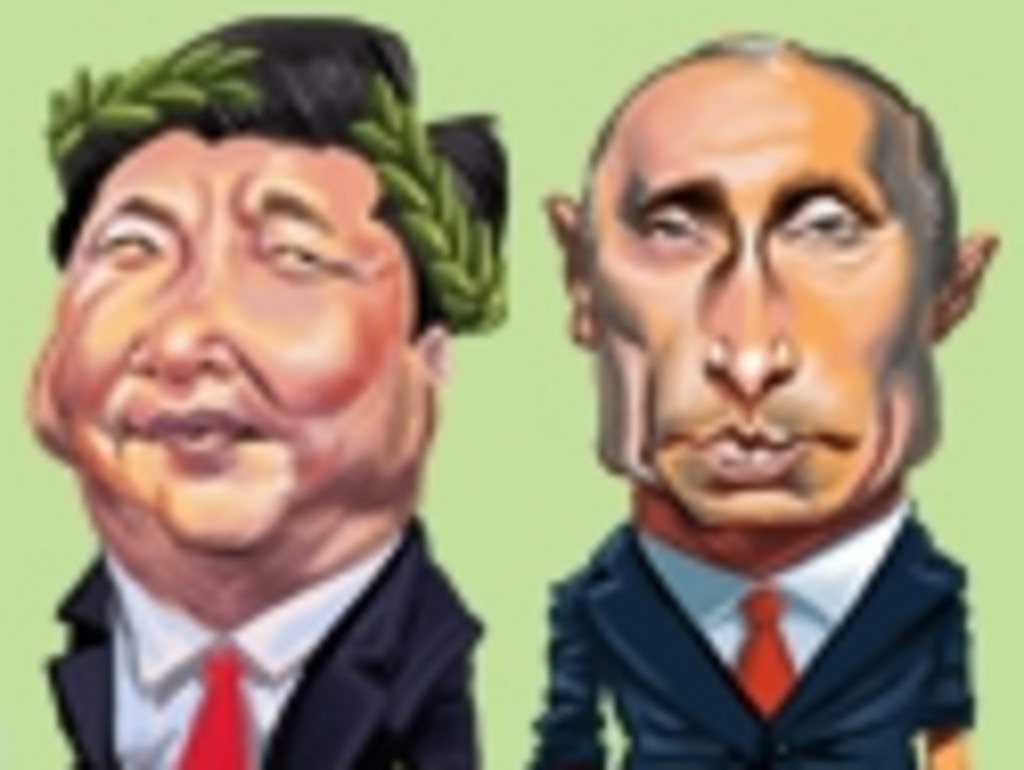China’s internal woes could yet eclipse those of the US


The orthodoxy of American decline is writ large in our lives. Unlike China’s defects, the tribulations of America have entered our culture.
From its celebrity worship, the polarisation of its politics, the fracturing provoked by Donald Trump, the lack of confidence in Joe Biden, the appalling inequality, the doubts about American willpower and the prospect of recession, the demise of the US is a story rich with narratives.
By contrast, China is closed to our public vision. Governed by the Communist Party with its official ideology of Marxist-Leninism that repudiates liberal democracy and individual freedom, China exists as an epic human experiment: keeping party control of a nation that aspires to become a successful society and the world’s largest economy. President Xi is the navigator of this experiment that defies many elements of human nature and social organisation.
Those who assert Australia should deal with China as a nation-state ignoring its authoritarian character are wrong – it is China’s ideology that pervades every aspect of its domestic and foreign policy.
Xi’s consolidation of power has produced probing reassessments of his rule, now extending to 10 years and possibly lasting for another decade. The evidence is accumulating that Xi’s methods are less successful than once assumed and are seeding long-run contradictions leading to internal rupture or crisis.
At a time when the utility of democracy is being questioned, China’s ultimate defect lies in its authoritarian expression of the communist state. This is the lesson of history; it is unlikely to be disproved by China’s story.
King’s College, London China analyst Kerry Brown wrote in The New York Times that Xi’s amassing of unquestioned power is actually a reflection of Communist Party practice and ideology. “There is indeed an autocrat who rules modern China, but it is the party that Mr Xi serves, not the man. And in a strange way, he is as much a captive of the party as everyone else.”
The logic of communist control is the necessity to strengthen despotic leadership – once power is shared the party loses control and the entire system collapses. Xi’s leadership has had an overriding goal: guaranteeing party rule. Xi has purged his rivals, consolidated party control over state institutions and promoted ideological correctness. He is obsessed with the idea that ideological weakness leads to regime disintegration. Under Xi, China has become strong again but the test of his leadership is how he reconciles China’s strength with communist control.
In his recent Foreign Affairs essay that has generated international attention, Kevin Rudd identifies Marxist-Leninist ideology as the factor most often overlooked in Western analysis of Xi.
“Under Xi, ideology drives policy more often than the other way around,” Rudd said. “Xi has pushed politics to the Leninist left, economics to the Marxist left and foreign policy to the nationalist right. He has reasserted the influence and control the party exerts over all domains of public policy and private life, reinvigorated state-owned enterprises and placed new restrictions on the private sector.”
This is not the path to national success or maximising prosperity. If continued for another five or 10 years the result will be substantial underperformance. Rudd says while Xi believes he will “change the course of history”, his “Achilles’ heel is the economy”, and debate over whether the world has already witnessed “peak China” is “only just beginning”.
Xi’s zero-Covid stand has meant economic pain and popular hostility. Confidence is declining in China’s finance and property sectors.

Regime predictions that economic growth would remain about 6 per cent during the 2020s look doomed. Estimates for growth over the next couple of years vary but the World Bank has revised its 2022 GDP forecast for China to 2.8 per cent.
China faces the challenge of misdirected investment, high debts and a rapidly ageing population. Rudd said: “China might enter the 2030s still locked in the so-called middle-income trap, with an economy smaller or only marginally larger than that of the United States.”
Financial Times chief economics commentator Martin Wolf offered a devastating rebuttal at Xi’s coronation, saying: “It is simply realistic to expect the next 10 years of Xi to be worse than the last.” Branding Xi’s third term confirmation as “dangerous” for both China and the world, Wolf warned that “the despot will become increasingly isolated and defensive, even paranoid”.
Wolf said: “The fundamental macroeconomic problems are excess savings, its concomitant, excess investment, and its corollary, growing mountains of unproductive debt. These three things go together: one cannot be solved without the other two.” The household share in disposable incomes needed to be raised but this ran into entrenched interests.
Penetrating to the essence of the problem, Wolf said Xi’s resort to far stronger central controls was the natural reaction when political command was threatened by greater freedoms. He asked: how can absolute control by one man deliver effective rule of a growing sophisticated society of 1.4 billion people?
In February Xi threw in his lot with Vladimir Putin, a defining decision that reveals much about his character and raises serious doubts about his judgment. Putin and presumably Xi never envisaged the West could unite so quickly and so boldly to re-arm Ukraine, punish Russia for its invasion and give China fresh issues to consider over Taiwan.
Former ambassador to China Geoff Raby, a critic of Australia’s China policy, wrote in this paper last weekend that it was “especially alarming” for China’s leaders to watch the forcefulness of the West’s response and extent of allied co-ordination, given China is far more vulnerable to punitive action and exposed with its energy supplies shipped via the Strait of Malacca.
Putin aside, there is mounting evidence Xi’s confirmation may prove to be the most dangerous long-run political event for the world. Or, put another way, does Putin’s behaviour provide a case study in how absolute power erodes the judgment of autocrats?
Democracy these days looks like a train wreck. But its virtue is its capacity for self-correction. Trump was deposed by the American people; no need for a coup. Failing British Prime Minister Liz Truss will be removed by constitutional means, by her party or at an election. Democratic process, by trial and error, typically, discovers better leaders.
The moral with China is that the more a country succumbs to one-man control, the greater the risks. Yet this is one-man control of a rising great power, where nationalism is the fuel that legitimises the leadership while Marxist ideology perpetuates the notion that China’s victory is assured because it marches with history.
America may be in relative decline. But it is a long distance from down and out.
As for China, don’t assume its rise under Xi is inexorable or that its internal woes won’t spectacularly eclipse those of the US.







The coronation of 69-year-old Xi Jinping for a third five-year term, tightening his grip on China when many of his policies look flawed and counter-productive, raises the question: are China’s internal weaknesses even more challenging than those afflicting the US?